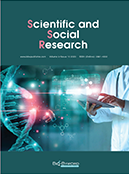Abstract
By interpreting the complex phenomena contained in the term “Artificial Intelligence” (AI) from the perspective
of International Economic Law (IEL), this article aims to demonstrate that Information and Communication Technology (IET) is influencing the developments in AI, and these impacts can be either positive or negative. Throughout this process, IET is also undergoing significant and practical transformations itself. Overall, the three most important themes of this article are the interaction between AI and IET, of which the disruptive impact of AI, the need for AI supervision, and the direction of IET reconstruction. By exploring the three clues: By investigating three key areas: advancements in AIrelated technology, economic consequences, and discussions surrounding legal reforms, we can uncover the disruptive influence it has on IET. Amidst this significant influence, numerous debates have emerged concerning specific topics such as regulatory subjects, entities, and approaches, particularly in various governance scenarios. This article will assess the transformations within IET and contemplate the necessity of future adaptations. As artificial intelligence rapidly advances, IET plays a pivotal role in shaping AI across multiple domains, encompassing its development, deployment, and utilization.
References
Stone P, 2016, Artificial Intelligence and Life in 2030: One Hundred Year Study on Artificial Intelligence - Report of the 2015 Study Panel, Stanford University, viewed October 7,https://ai100.stanford.edu/sites/g/files/sbiybj18871/files/media/file/ai100report10032016fnl_singles.pdf
McCarthy J, 1955, A Proposal for the Dartmouth Summer Research Project on Artificial Intelligence, Stanford University.
Mitchell M, 2019, Artificial Intelligence: A Guide for Thinking Humans, Picador, London
Saygin AP, 2000, Turing Test: 50 Years Later, Minds and Machines, 10: 463.
Hofstadter D, 1979, Gödel, Escher, Bach: An Eternal Golden Braid, Basic Books, New York.
Minsky M, 1986, The Society of Mind, Simon and Schuster, New York.
Dick S, 2019, Artificial Intelligence, Harvard Data Science Review, 1(1.1): 1–8.
Corea F, 2019, An Introduction to Data: Everything You Need to Know About AI, Big Data and Data Science, Springer, Cham.
Goodfellow I, 2016, The Deep Learning Revolution, Deep Learning MIT Press, Cambridge.
Baldwin R, 2019, The Globotics Upheaval: Globalisation, Oxford University Press, Oxford
Ciuriak D, 2020, Economic Rents and the Counters of Conflict in the Data-Driven Economy, CIGI, viewed October 7, 2023, https://www.cigionline.org/publications/economic-rents-and-contours-conflict-data-driven-economy/
EU-UK Trade and Cooperation Agreement (TCA), n.d., European Commission, viewed October 7, 2023, https://commission.europa.eu/strategy-and-policy/relations-non-eu-countries/relations-united-kingdom/eu-uk-trade and-cooperation-agreement_en
The United States Department of Justice, 2020, Justice Department Sues Monopolist Google for Violating Antitrust Laws, DOJ Press, viewed October 7, https://perma.cc/7RQV-QS72
Kaminski M, 2020, Understanding Transparency in Algorithmic Accountability, Cambridge University Press,Cambridge.
Moses LB, 2013, How to Think about Law, Regulation and Technology: Problems with Technology as a Regulatory Target, Law. Innovation and Technology, 5(1): 1–20.
Wendehorst C, Woopen C, Haberer J, 2019, Opinion of the Data Ethics Commission, Data Ethics Commission of the Federal Government, Berlin.
Irion K, 2021, AI Regulation in the European Union and Trade Law: How Can Accountability of AI and a High Level
of Consumer Protection Prevail over a Trade Discipline on Source Code, SSRN, viewed October 7, 2023, https://ssrn.com/abstract=3786567
MK Land, JD Aaronson, 2020, Human Rights and Technology: New Challenges for Justice and Accountability. Annual Review of Law and Social Science, 16: 223–240.
Johnson K, Access Now Resigns from Partnership on AI Due to Lack of Change Among Tech Companies,Venturebeat, viewed October 7, 2023, https://venturebeat.com/2020/10/14/access-now-resigns-from-partnership-on-ai-due-to-lack-of-change-among-tech-companies
Cowls J, Floridi L, Prolegomena to a White Paper on an Ethical Framework for a Good AI Society, SSRN, viewed January 11, 2023, https://papers.ssrn.com/sol3/papers.cfm?abstract_id=3198732
Pasquale F, 2020, New Laws of Robotics: Defending Human Expertise in the Age of AI, Harvard University Press,Cambridge.
Burri M, Polanco R, 2020, Digital Trade Provisions in Preferential Trade Agreements: Introducing a New Dataset. Journal of International Economic Law, 23: 187.
World Economic Forum, 2020, Data Free Flow with Trust: Paths towards Free and Trusted Data Flows, World Economic Forum, viewed October 7, 2023, https://perma.cc/KYR7-AZAM
Digital Economy Partnership Agreement, 2020, viewed October 7, 2023, https://perma.cc/U23E-URUS
Drake-Brockman J, 2020, Australia-Singapore Digital Trade Agreement: Setting New Benchmarks in Trade Governance, The University of Adelaide, viewed October 7, 2023, https://perma.cc/3FLA-WEPE
Office of the United States Trade Representative, n.d., U.S.-Japan Digital Trade Agreement Text, viewed October 7, 2023, https://perma.cc/UUA9-7NUD
Yakovleva S, Irion K, 2020, Pitching trade against privacy: Reconciling EU governance of personal data flows with external trade, International Data Privacy Law, 10:201.
Alschner W, 2017, The Data-Driven Future of International Economic Law. Journal of International Economic Law, 20(2): 217–231.
Mohen J, Roberts A, 2020, Cracking the Code: Rulemaking for Humans and Machines, OECD Publishing, Paris.
Hildebrandt M, n.d., Project COHUBICOL, Computational Law, viewed October 7, 2023, www.cohubicol.com
